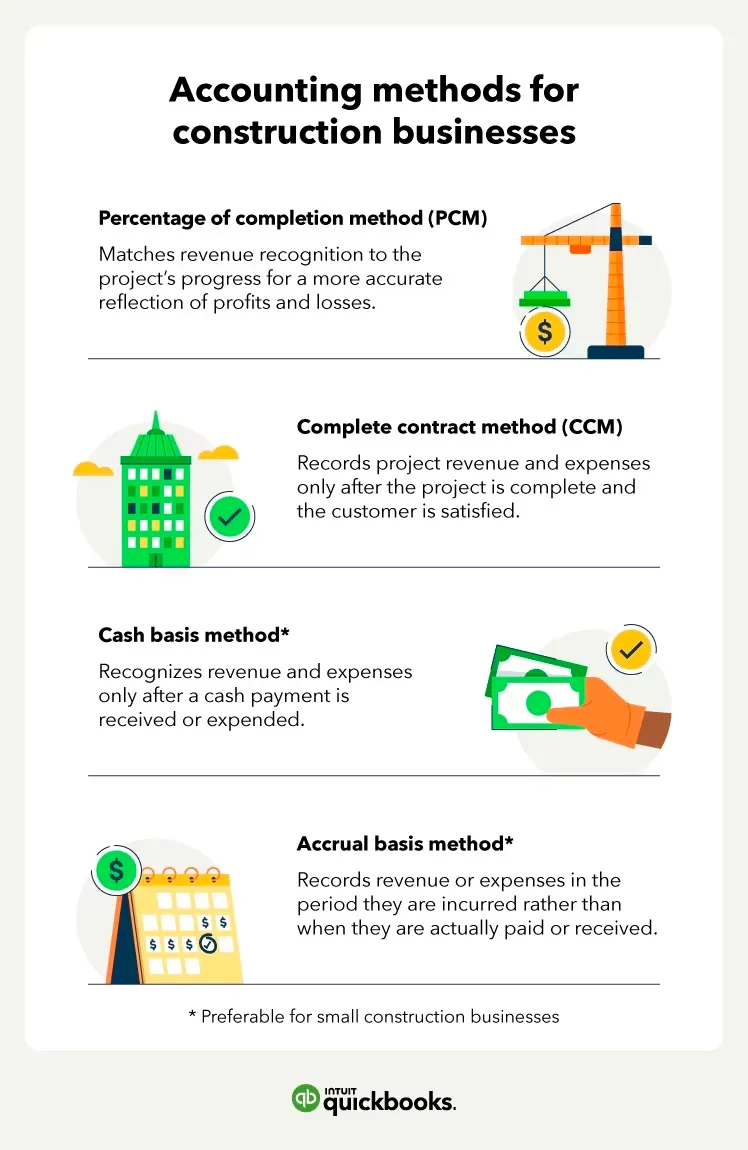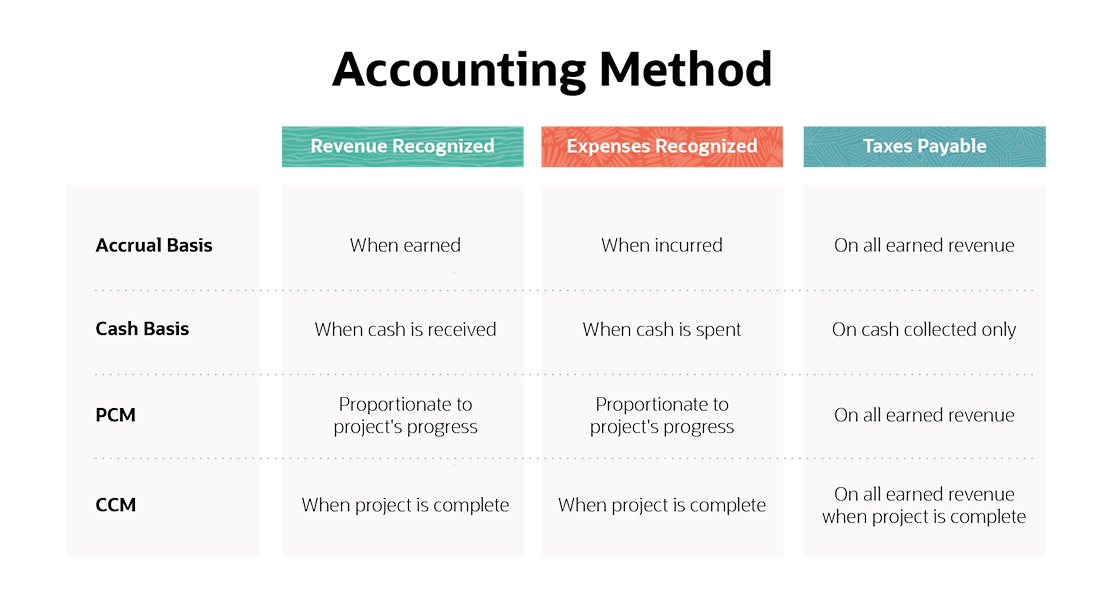Successful Construction Projects Start with Proper Construction Accounting Practices
Successful Construction Projects Start with Proper Construction Accounting Practices
Blog Article
Understanding the Relevance of Construction Bookkeeping for Effective Job Administration

Role of Building Bookkeeping
Construction bookkeeping offers as the foundation of financial administration in the building and construction market, making sure that jobs are finished within budget and monetary goals are satisfied. construction accounting. This customized accounting approach addresses the one-of-a-kind difficulties encountered in building and construction tasks, including differing task durations, rising and fall prices, and several stakeholders
One of the main roles of building bookkeeping is to give precise cost estimate and tracking throughout the project lifecycle. This helps with educated decision-making, making it possible for task managers to change timelines and resources efficiently. Furthermore, building and construction audit boosts cash circulation administration by keeping track of accounts receivable and payable, therefore guaranteeing that funds are offered for timely repayments to subcontractors and providers.
It outfits project supervisors with the needed financial information to prepare thorough financial statements, which are crucial for audits and financial testimonials. Ultimately, the role of construction audit extends past mere financial monitoring; it is integral to tactical preparation and operational effectiveness, driving the success of building tasks in an affordable landscape.
Trick Parts of Building Bookkeeping

Budgeting establishes a financial framework that overviews project execution, enabling supervisors to assign sources efficiently and expect possible monetary obstacles. Precise expense monitoring is vital for monitoring expenditures in real-time, assisting to determine differences between projected and actual costs. This makes it possible for timely changes to maintain the task on budget plan.
Additionally, monetary reporting supplies stakeholders with a clear photo of the job's financial health and wellness. Normal reports, such as revenue and loss declarations and cash flow analyses, facilitate notified decision-making and boost openness among all parties entailed.
Furthermore, compliance with industry regulations and bookkeeping criteria is crucial. This guarantees that financial techniques are not just efficient but likewise authorized, guarding the company versus lawful effects. By integrating these key parts, building accounting fosters a structured method to handling monetary sources, inevitably adding to the effective conclusion of construction jobs.
Benefits for Project Supervisors
Leveraging reliable construction accountancy methods provides job supervisors with a plethora of benefits that boost both operational performance and economic oversight. One substantial benefit is enhanced budget plan monitoring. Precise tracking of costs and profits allows job supervisors to check monetary efficiency in real time, guaranteeing jobs continue to be within spending plan and helping with timely changes when required.
Moreover, building and construction bookkeeping simplifies capital monitoring, enabling job supervisors to anticipate monetary demands and enhance source appropriation. By recognizing money inflows and outflows, they can better manage payments to advice subcontractors, employees, and vendors, consequently avoiding pricey hold-ups.
Furthermore, robust accounting systems provide detailed reporting capabilities. Project supervisors can generate reports that provide understandings right into job productivity, cost variations, and source utilization. This data-driven approach fosters informed decision-making, permitting managers to determine prospective problems proactively and apply corrective procedures.
Finally, adherence to building and construction accountancy standards ensures compliance with legal and regulatory needs, lessening the danger of penalties or disputes. In general, effective building and construction bookkeeping furnishes job supervisors with the devices essential to drive project success, boost stakeholder self-confidence, and promote lasting organizational development.
Common Obstacles in Building Audit
Numerous job supervisors experience considerable difficulties in building and construction audit that can hinder project success. One of the main difficulties is the complexity of tracking several work sites, each with distinct budget plans, timelines, check this and resource appropriations. This needs meticulous focus to information, which can be overwhelming without a durable accounting system in area.
In addition, fluctuating material prices and labor prices can make complex budget monitoring, making exact projecting hard. Project managers frequently struggle to resolve these prices with real expenses, bring about possible financial inconsistencies.
Additionally, building accountancy entails compliance with numerous laws, consisting of tax obligation obligations and labor regulations. Browsing these rules can be overwhelming, particularly for managers that might not have a strong accounting history.
Another substantial challenge is handling money circulation, which is crucial in the building market. Delays in invoicing, settlements from customers, or unexpected project changes can create capital scarcities, jeopardizing the project's progress.
Last but not least, effective communication in between job managers, accounting professionals, and area groups is crucial. Misconceptions can cause inaccurate economic coverage, better making complex job management initiatives. Attending to these difficulties proactively is essential for effective building and construction accountancy.

Ideal Practices for Effective Accountancy
While navigating the intricacies of building bookkeeping can be complicated, embracing finest practices can substantially improve economic management and task success. One fundamental practice is maintaining timely and exact documents. Executing durable bookkeeping software program tailored to building jobs can simplify information access, invoicing, and reporting, conserving and lowering errors time.
In addition, establishing a clear budget plan and regular tracking versus this budget are critical. Employing a system of periodic economic reviews permits project managers to recognize variations early, helping with timely decision-making. It is also necessary to separate project costs right into indirect and straight classifications, allowing more clear insights into success.
One more ideal method involves fostering open interaction among all stakeholders. Routine updates and joint discussions regarding financial standing can make sure every person is aligned and educated. Training personnel in construction-specific accountancy concepts even more enhances expertise and precision.
Lastly, ensuring article source compliance with pertinent bookkeeping standards and laws is non-negotiable. Normal audits and inner reviews add to openness and accountability, building trust fund with customers and stakeholders. By focusing on these best methods, construction firms can maximize their bookkeeping procedures, eventually driving task success and monetary security.
Final Thought
Finally, building and construction bookkeeping plays an essential function in guaranteeing effective task monitoring by promoting accurate monetary oversight and improving decision-making. By integrating key elements such as cost estimation, money flow monitoring, and conformity, project supervisors can browse common challenges and leverage best techniques for reliable accountancy. Ultimately, a durable building and construction bookkeeping structure not just safeguards spending plan stability however also contributes to the total financial health and wellness of building tasks, fostering sustainable success within the market.
By incorporating these crucial elements, construction accountancy cultivates a structured approach to taking care of financial resources, ultimately contributing to the effective conclusion of building and construction tasks.
Exact tracking of costs and revenues enables task supervisors to check economic performance in real time, guaranteeing projects stay within budget plan and promoting timely adjustments when necessary.
Task supervisors can generate reports that offer insights right into task productivity, price variations, and source usage.Several project supervisors come across significant obstacles in construction bookkeeping that can hinder task success. construction accounting. Inevitably, a robust construction audit framework not just safeguards budget honesty yet also contributes to the total financial wellness of construction tasks, cultivating sustainable success within the sector
Report this page